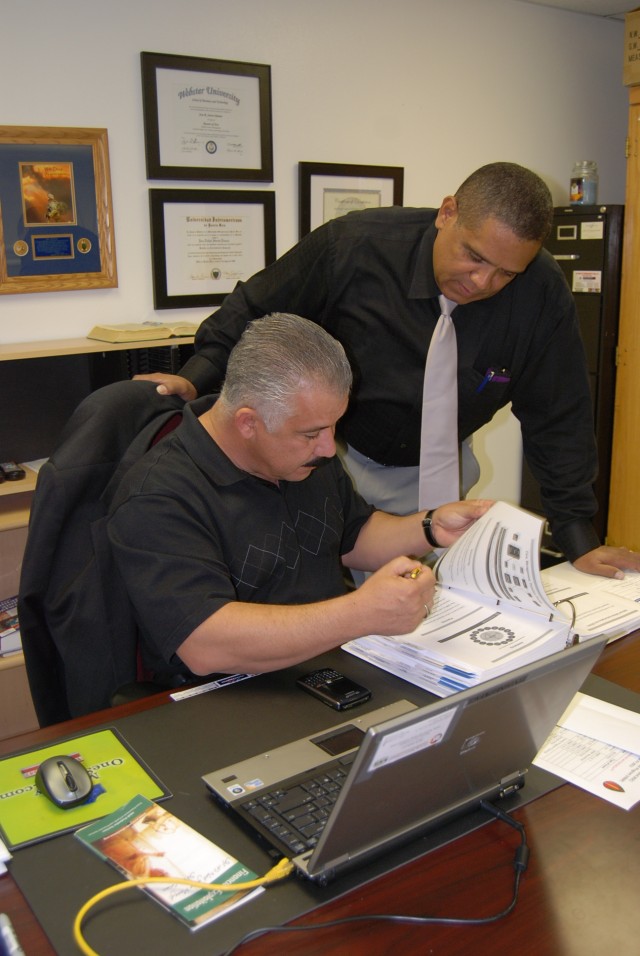
Since the launch of the Army Reserve Warrior and Family Assistance Center on post four months ago, Soldiers now have a timely and effective resource that consolidates their personal and military life issues.
"One of the most complicated cases I have dealt with so far was a Soldier who came back from Iraq last year," said Jose Santos, recovery care coordinator and 20-year Army veteran with the four-month-old Fort Bliss-based Army Reserve Warrior and Family Assistance Center.
"When he returned to his former employer, he found himself going from a full-time to a part-time job. His income was supplemented by the monthly drills he attended. But, he had to travel close to 200 miles to get to his training destination.
"I found out that not only was he having financial problems because he didn't have a full-time job, but he was also having problems at his military unit," said Santos. "Someone within the chain of command did not understand he was very close to becoming a PTSD (post-traumatic stress disorder) case. He had a wife and family, and he was unable to pay his mortgage when he called."
Santos said he had to "go up the chain of command" to get someone to understand what was happening to his client.
"It was not a discipline case with the young Soldier, but a situation where he was really stressed," he said. "He didn't have enough money to cover his basic needs. He didn't know where to go to get help.
"For example, if they have financial, marital, child care, employment, we connect the dots for them," Santos added. "We find the resources - we connect the dots with the military or civilian community to help them integrate with their families and the civilian world because they just returned from active duty."
"We have social workers chaplains, nurses and each one is assigned by a clinical social worker, counselor or marriage coordinators to handle the clinical part," he said. "As recovery care coordinators, we take care of the nonclinical aspects of the recovery as they occur during the continuum of care."
AR-WFAC was started to meet the needs of wounded warriors and their families. It also includes active National Guard, Individual Ready Reserve and Reserve units, as well as retirees, veterans and active Reserve.
The Dole and Shalala Report was commissioned July 2007 to investigate care given to American Soldiers returning from war, and on conditions at Walter Reed Medical Center during that time. It was widely reported in the civilian press that Soldiers were living in inhuman conditions. The commission found care given to American Soldiers returning from war was less than it should have been for the returning warriors and their families. Subsequent legislation mandated and provided public law mandates and the National Defense Authorization Act was finalized.
On Oct. 27, 2009, there was a change to the organization's name to more directly reflect its mission. This is what the Army Reserve Warrior and Family Assistance Center program falls under. This program is extended to all military services. Initially, it was launched with the United States Marine Corps.
For more information on the Army Reserve Warrior and Family Assistance Center, go to www.arfp.org and click on the "Warrior and Family Assistance Center" tab on the left side.

Social Sharing